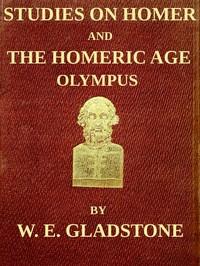Read this ebook for free! No credit card needed, absolutely nothing to pay.
Words: 138199 in 35 pages
This is an ebook sharing website. You can read the uploaded ebooks for free here. No credit cards needed, nothing to pay. If you want to own a digital copy of the ebook, or want to read offline with your favorite ebook-reader, then you can choose to buy and download the ebook.


: The Robber A Tale. by James G P R George Payne Rainsford - England Social life and customs 17th century Fiction
arms upon his breast, and looked him full in the face, saying, "Well, Captain, I'm ready."
"You mistake me," said Gray, laying down the pistol on the table, with the muzzle towards himself. "My friends, if I have done wrong by the shot I have fired, any of you that so pleases, has but to take up that pistol and use it as boldly as I have done its fellow. What say you; am I right or wrong?"
"Right, right!" replied every voice.
"Well, then," said Gray, putting up the weapons again, "some of you take him down; and you, Doveton and Marcham, hark ye;" and he spoke a few words to them apart. "Take Hardcastle with you," he added; "that shall be his punishment!" so saying, he turned, took up a lamp that stood near, and quitted the hall.
Franklin Gray mounted the steps in the tower that we have mentioned, slowly and sadly; paused halfway up, and fell into deep thought. His reverie lasted but a minute: he then proceeded, and reached the room where the fair being whom he called Mona was watching anxiously for his coming. Her eyes questioned him; but he made no reply in words. He threw his right arm round her, however and rested his face upon her bosom for several minutes, with his eyes shut; then pressed her to his heart, kissed her cheek, and said "Come my Mona, come and see our babe sleeping."
For nearly three miles Langford rode rapidly on. His mind was in that state of confusion and uncertainty which admitted not of any slow movement of the body; but as he thought again and again of all that had occurred, he the more deeply regretted that he had ever gone to the rendezvous with Franklin Gray, although his purpose in there going was to separate his own proceedings for ever from those of one whose present pursuits could be no longer doubtful. When Langford had known him in former years he was a wild and reckless soldier of fortune, whose bold rash spirit had prevented rather than aided him in rising to those high grades in the service which his talents might otherwise have obtained. His heart had ever, as far as Langford had seen it, been kind, noble, and generous; there were many circumstances which had connected them closely in our hero's early life; and in himself and his fate, Franklin Gray had ever taken a deep and affectionate interest.
His hatred of inactivity, his love of enterprise, his daring courage, his strong and determined resolution, his rapid powers of combination, and that peculiar talent for command which is a gift rather than an acquirement, had made him loved and admired by the soldiery under him, and might have gone far to constitute one of the greatest generals of the age. But by his fellow officers he had never been loved, and by those above him he had constantly been used, but had never been trusted nor liked. In truth, there was a fierce and overbearing spirit in his bosom, a contempt for other men's opinions, and an abhorrence of the ordinary littleness of human nature, which prevented him from seeking or winning the regard of any one, towards whom some peculiar circumstance, or some extraordinary powers, had not excited in his bosom feelings either of tenderness or of respect; and for this reason he had never been loved. Why he had never been trusted was another matter. He had set out in life depending more upon feeling than upon principle as his guide; and though, as he went on, he had framed for his own bosom a sort of code of laws by which he was strictly bound, those laws did not always very well accord with the ordinary code of mankind, and if generally acted upon must have been disastrous to society. Those who disliked him--very often for his superiority to themselves--were glad to find in his failings a specious excuse for undervaluing his better qualities, and thus he had been always thwarted and bitterly disappointed in his progress through life.
Brought up as a soldier from his earliest years, he had ever looked upon strife as his profession, life as one great campaign, the world as a battle-field, mankind as either enemies or fellow soldiers. The great law that he had laid down for himself was, never to measure himself against any but those who were equal to the strife; and he would just as soon have thought of injuring the weak, the innocent, or the defenceless, as he would of murdering the wounded in an hospital. The proud, the haughty, and the strong he took a pleasure in humbling or overthrowing, even when bound to the same cause with himself, and the constant single combats in which he was engaged had raised him up a bad name in the service.
In other respects, though no one could ever accuse Gray of injuring the peasant, or taking away a part of the honest earnings of the farmer--though, even under the orders of his general, he would take no part in raising contributions from the hard-working and industrious, and it was in vain to send him upon such expeditions, yet there had been many a tale current in the camp, of Gray and his troopers sacking and burning the castles in the Palatinate, driving the cattle from under the very guns of the enemy's fortresses, and sweeping the wealth from the palace of the Prince or the Bishop. Thus he had established in some degree the character of a daring, but somewhat marauding officer, and any soldier of more than ordinary enterprise and rashness ever sought to be enrolled in his troop. He had quitted the service of France in disgust some time before Langford, and they had not met again till Langford, called suddenly to the death-bed of a parent, found Gray, who had known her and hers in happier days, tending her with the care and kindness of a son.
Of what had taken place in the interim Langford was ignorant. From time to time Gray talked of other lands which he had visited, and more burning climates which he had known; but he did so in a vague and obscure manner, which excited curiosity without inviting inquiry. Langford had made none; and though they had met frequently since, and dark suspicions and apprehensions--springing from a comparison of Gray's former poverty and his known prodigality with the wealth he seemed now to have at command--had from time to time crossed his friend's mind in regard to the pursuits to which he had dedicated himself, it was only on the occasion of the present visit to Moorhurst that Langford had obtained a positive certainty of the painful truth. As soon as he had obtained that certainty, he determined to warn, to exhort, to beseech his former friend to quit the dangerous pursuits in which he was engaged; to offer once more to share with him all his little wealth, in gratitude for many an act of kindness gone before, and for a service that Gray was even then anxious to do him, at the risk of life itself; but on no account to participate in any scheme conducted by the other, however great and important the object to be gained for himself.
His own wound, and the temporary disappearance of Gray and his companions from that part of the country, had prevented Langford from notifying to him this intention fully, after the night of the attack upon Alice Herbert, though he had done so in general terms twice before, and he had gone to the rendezvous appointed by Gray, on the night of which we have just been speaking, supposing that it was to have preceded, not to have followed, the enterprise proposed. All that he had seen had been terribly painful to him; and in what had occurred upon the moor he had too good reason to believe that an act had been committed which he should not be justified in concealing. Yet, how was he to reveal it, without the basest breach of confidence, and the grossest ingratitude towards a man who had been risking all to serve him? How was he to denounce the crime that had been committed, and bring to justice the perpetrators thereof, without involving Gray in the same destruction?
Such were the matters in his thoughts, as he rode rapidly on towards the Manor House; but by the time he had gone about three miles his mind had been naturally led to inquire, who was the unfortunate person that had been attacked; and for the first time an apprehension crossed his mind that it might be Lord Harold.
Free books android app tbrJar TBR JAR Read Free books online gutenberg
More posts by @FreeBooks

: Studies on Homer and the Homeric Age Vol. 2 of 3 Olympus; or the Religion of the Homeric Age by Gladstone W E William Ewart - Homer; Epic poetry Greek History and criticism; Civilization Homeric


: Suomen herännäisyyden historia XIX:llä vuosisadalla IV. 1853-1900 by Rosendal Mauno - Finland Church history


: Uit den Indischen Archipel De Aarde en haar volken Jaargang 1875 by Wallace Alfred Russel - Malay Archipelago Description and travel




